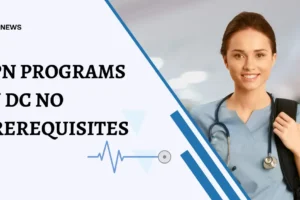Are you exploring options for Government funded courses for over 25 to further your education, change careers, improve job prospects, or develop new skills? you’ve landed in the perfect place.
Table of Contents
Having a low income or lower financial background can act as a barrier to your education. Especially for adults over 25 who want to return to college to get more qualified. There are several ways by which the student’s knee 25 can access the courses and programs for free. The federal or state government has funded some courses for students over 25.
We have researched and shortlisted some of the scholarships and grants that are offered by the government to cover the educational expenses of courses. These grants and scholarships are offered to fund the courses and programs.
What are government funded courses for those over 25?
There are no age restrictions for obtaining federal financial aid, which includes federal grants and student loans. As long as the students complete the Free Application for Federal Student Aid (FAFSA) and renew it annually, they remain eligible for federal financial aid.
Moreover, numerous privately offered scholarships and grants do not set specific age limits. While some may be designed for teenagers or high school seniors. Many organizations only require enrollment in a higher education program. Whether you are a student or an adult over 25, you are eligible for these grants for courses.
Several private scholarships and grants are explicitly designed for older or returning students, providing additional avenues for adults to finance their education, such as employer-sponsored tuition assistance.
Regardless of your chosen method to finance education, it is essential to complete the FAFSA to determine your eligibility for federal financial aid before exploring other scholarship and grant opportunities.
9 Best Government Funded Courses for Over 25
1. Patsy Mink Education Support Award

Annually, the Patsy Mink Education Support Award bestows five $5,000 scholarships upon mothers aged at least 17, pursuing education at any postsecondary level, including technical and vocational schools. Applicants need to provide income documentation demonstrating their low-income status.
Selection criteria include financial need, personal circumstances, educational path, vocational or occupational goals, and service or activist goals.
2. Ford Opportunity Program Scholarship

The Ford Opportunity Program scholarship is tailored for parents and students aged 25 and above. It applies to those pursuing an associate’s or bachelor’s degree, with an expected family contribution (EFC) not exceeding $10,000. This scholarship covers 90% of the cost of attendance and is available to residents and students in Oregon and Siskiyou County, California. Each year, up to 96 renewable scholarships are awarded.
3. Imagine America Adult Skills Education Program
To be eligible for the Adult Skills Education program, applicants must be at least 19 years old, with no specified maximum age limit. As long as they are enrolled in an eligible career or vocational training program, individuals can apply for the chance to win up to $1,000
4. Executive Women International Adult Students in Scholastic Transition (ASIST)
The ASIST scholarship is designed for adult students undergoing transitional periods in their lives, whether physical, social, or economic. Applicants can pursue a certification program or an associate’s, bachelor’s, or master’s degree. The award amount varies from $2,000 to $10,000, and applicants must initially apply at the local level through one of the organization’s 34 chapters to qualify.
5. Return2College Scholarship

The Return2College award of $1,000 is open to anyone aged 17 and above planning to enroll in the upcoming school year, with no maximum age limit. The sole requirement is to complete a brief form, answering the question “Why are you getting your degree?” in three sentences.
6. Job-Applications.com Working Parent College Scholarship
Employed parents enrolled in a college, trade school, or accredited program may be eligible for the Working Parent scholarship. To qualify, applicants need a minimum GPA of 3.0, work at least 12 hours per week, and submit a concise form along with a 600-1,000 word essay explaining how they balance parenting, working, and studying.
7. Federal Grants
Federal grants, such as the Pell Grant and the Federal Supplemental Educational Opportunity Grant (FSEOG), are inclusive and available to students regardless of age. The Pell Grant has a maximum amount of $7,395 for the 2023-24 school year, while the FSEOG provides up to $4,000 annually. Both awards are need-based, and applicants must complete the FAFSA for consideration.
8. College JumpStart Scholarship
Adult learners can apply for the College JumpStart Scholarship, an annual $1,000 award based on applicants’ merits and accomplishments. The primary requirement is a commitment to pursuing higher education, and the application process involves completing a brief form and providing a 250-word statement explaining educational goals.
9. Soroptimist Live Your Dream Award
Targeting women acting as the primary financial support for dependents, including children, partners, or other relatives, the Soroptimist Live Your Dream Award offers financial assistance. Recipients can be awarded amounts of $1,000, $5,000, or $16,000 to cover various education-related costs for undergraduate degrees, including childcare expenses.
Eligibility for Government funded courses for over 25
Government funded courses for over 25 often involve a competitive process for grant distribution. Applicants are required to submit detailed proposals outlining their objectives for utilizing the funding. These proposals undergo evaluation by a panel of experts who assess and select the most promising ones. Fulfilling specific needs and requirements is crucial for applicants aiming to secure these grants.
Different types of government grants are available, each with specific eligibility criteria depending on the program. Generally, eligibility requires being a citizen or legal resident of the country offering the grant and being at least 18 years old. Most programs also demand a demonstrated need for funding. For instance, if seeking a grant to launch a new business, a solid business plan and proof of difficulty securing funding from other sources may be necessary.
Government grants serve as a valuable funding source for individuals or organizations involved in projects for the public good. However, it is essential to recognize that grants are not free money.
Recipients must utilize the funds as outlined in their proposal, working towards achieving specified goals. Additionally, they may need to submit progress reports and financial statements to the granting government body. Failure to meet the terms of the grant agreement could result in the obligation to repay the entire grant amount.
A government grant is a monetary award provided to an individual or organization by a government body for a specific purpose, such as initiating a business or covering events or training costs. Various government grants exist, each with distinct eligibility requirements.
To qualify for most grants, applicants typically must be citizens or legal residents of the offering country, be 18 years or older, and demonstrate a genuine need for the funding. While government grants offer benefits, it is crucial to remember that they entail obligations, and recipients must adhere to the terms of the grant agreement, potentially facing repayment if terms are not met.
Advantages of Government Grants
Successfully securing a government grant offers a range of benefits to the students. Some of these benefits or advantages are mentioned below, let’s have a look:
1. Non-Repayable Nature
One of the most significant advantages is that government grants are not subject to repayment. Unlike loans that come with the obligation to repay borrowed amounts along with interest, grants operate as a form of government donation. This characteristic makes them highly appealing in comparison to other forms of financial support.
The decision to award funds often hinges on whether the government believes a student is eligible for the grants and meets all the eligibility requirements. With this support, students can experience more financial gain and increased chances for success.
2. Widespread Availability
Government grants cover a broad spectrum of programs including healthcare, education, and commerce. Statistics for 2022-2023 revealed that a massive number of needy students benefited from the government-funded courses. The abundance and adaptability of these grant schemes provide numerous opportunities for needy students.
There are no restrictions on the number of grants one can apply for, allowing qualification for multiple grants simultaneously to cover the expenses of different programs.
3. Enhanced Credibility
Securing a government grant is a highly competitive achievement that enhances a student’s credibility. This accomplishment serves as a benchmark for future funding applications. Closer ties with the government can also help the student to get funds for other educational expenses as well. This will position it as an expert in the field.
Disadvantages of Government Grants
While government grants offer notable advantages, they come with several disadvantages as well. Some of these disadvantages are mentioned below, let’s have a look:
1. Complex Proposal Process
The process of applying for government grants can be difficult. Proposals must stand out, demonstrate worth, and meet strict criteria. Grant applications require months of planning and extensive writing, with additional time to await approval or rejection. Students can alleviate this burden by getting help from the financial department of their educational institution.
2. Contractual Obligations
Government funding comes with some limitations and restrictions of usage that are attached to the agreement. Grants are awarded based on the alignment of a student mission with government needs. This contractual obligation means that spending is essentially controlled, with rules, targets, and timescales to follow. Extensive eligibility requirements and application processes are required for the government to track fund usage and ensure compliance.
3. Short-Term Nature
While government grants provide an initial financial boost, they are not a sustainable long-term solution. Students cannot rely on them to sustain operations over extended periods. Large one-off payments necessitate careful planning to account for every penny spent. Managing a government grant may require significant needs to satisfy eligibility requirements for a relatively short duration.
FAQs
1. Are there any tuition-free programs in the United States?
While some community colleges in the U.S. offer tuition-free education, the majority do not provide such benefits. As of 2022, 20 states have implemented tuition-free community college programs. Residents in these states, meeting specific criteria, can attend classes without paying tuition.
2. Is it possible to secure a 100% scholarship in the USA?
Obtaining a 100% scholarship to study abroad in the USA is possible. Many colleges and universities extend such scholarships to Indian students. Although acquiring a full scholarship is challenging, it is attainable.
3. What are the age criteria for scholarships?
Regarding scholarships in India, the maximum age limit for students is 40 years, while for SC/ST/OBC and PwD candidates, it is 45 years.
4. Are there age restrictions for a PhD scholarship in the USA?
Age is not a limiting factor when pursuing a PhD in the USA. People can embark on their PhD studies even after reaching the age of 40, and there are no age-specific restrictions. In the United States, emphasis is placed on the applicant’s background and profile, with no discrimination based on age.
5. Is there a specific age limit for pursuing a Master’s degree in the USA?
There is no designated age restriction for individuals seeking to pursue a master’s degree in the United States. Applicants of any age are eligible to apply to master’s programs, provided they meet the admission requirements set by the respective university.
Conclusion
All the Government funded courses for over 25, including the scholarships and grants mentioned, serve as crucial avenues for adults seeking financial support for their education. These particular grants, recognized as back-to-school grants, offer significant assistance. However, meeting the outlined needs and requirements remains imperative for applicants aiming to access these opportunities.












Add Comment